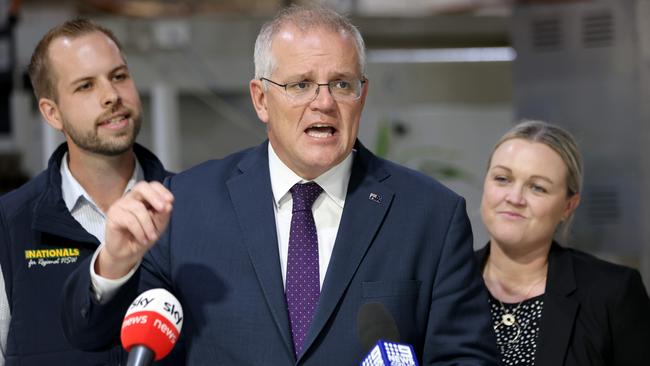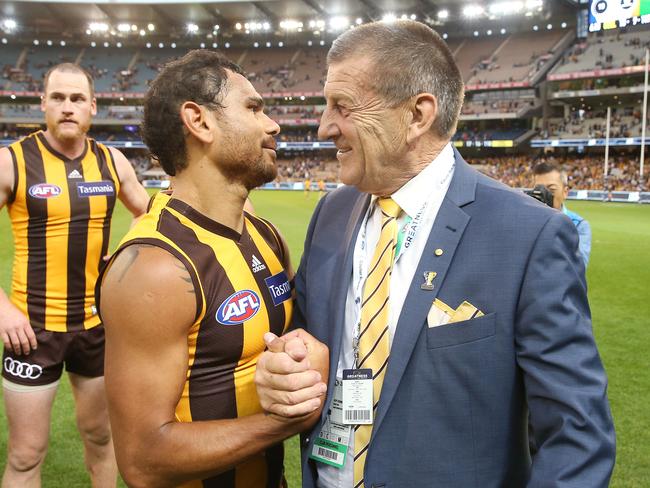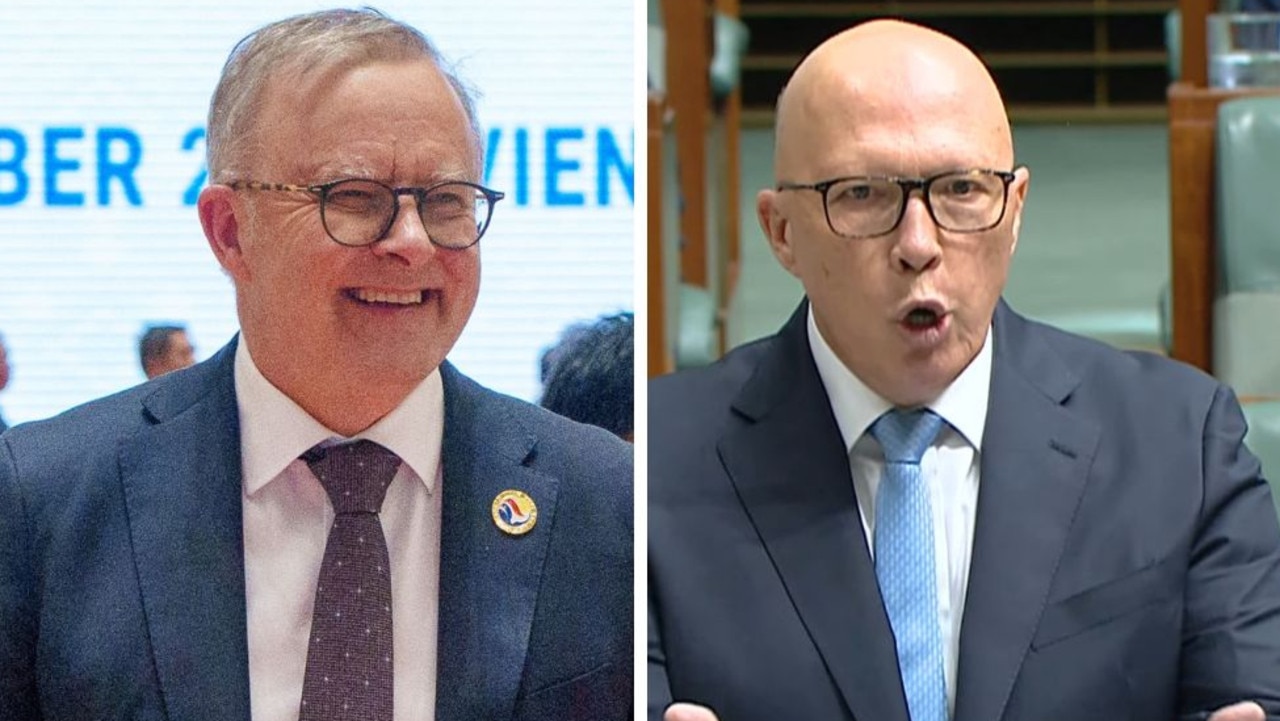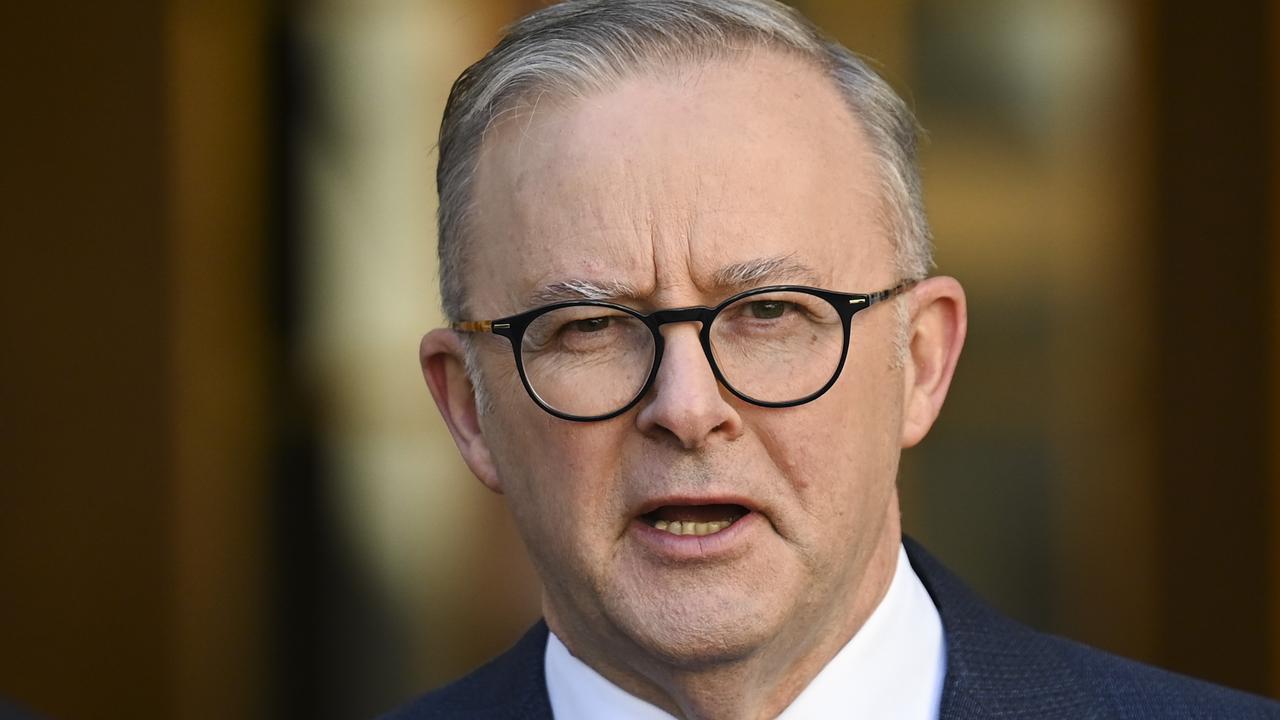Patrick Carlyon: Nobody is free from racism claims
In the fever to find offence, to identify culprits and cancel them, society appears determined to expose racism even where it may not lurk.
Patrick Carlyon
Don't miss out on the headlines from Patrick Carlyon. Followed categories will be added to My News.
Tex Walker returns to AFL football this weekend after being banished from the game for the racism scandal which engulfed both him and the Adelaide Crows last August.
Few rushed to defend Walker at the time: his own rather anguished efforts at amends illustrated the obviousness of his error.
Shamed and blamed, Walker’s footballing legacy will be dimmed by an unfortunate strand of ignorance and arrogance.
Other trickier examples of supposed racism keep emerging.
Prime Minister Scott Morrison has been accused of racial vilification in a preselection fight in 2007.
The claims may be true; they may not. The hateful spectre, which he denies as “outrageous”, hangs unanswered in the near absence of evidence for the claim against him.
This seems to happen a lot. In the fever to find offence, to identify culprits and cancel them, society appears determined to expose racism even where it may not lurk.
A supermarket has been “outed” for a clumsily-put together aisle sign. That the sign, which listed pet food with Asian (food), was probably thrown together by an overworked teenager cannot dim the ire.

The Project has been accused of racism, for a joke about a South Korean boy band and Covid.
“We condemn these microaggressions being demonstrated towards Asian artists and demand a take-down of the post and a formal apology,” a fan group offered, in language apparently aimed to irritate.
This example raises questions.
Do claims of racism no longer have to involve any overt or implied mention of race?
Is something unkind said to any person of colour a possible example of racism, even when there is no reference to race?
If it is, must we soften the reflexively incendiary response to any claim of racism, given that hateful examples of racism now appear to be compared with unwitting, unintended and sometimes innocent moments of so-called racism?
Racist is an easy label to cast, a particularly nasty one. It can leave scars. Like bullying (but harsher), claims of racism need not be supported with much evidence.
Retellings of a story involving Hawthorn president Jeff Kennett at Launceston airport in 2018 have been loaded up with racial overlays.
The incident has been readily conflated with claims about a racist culture at that club and in football.
Kennett was talking with Cyril Rioli’s wife Shannyn Ah Sam-Rioli. He made a joke about her ripped designer jeans, and offered her coins, in jest, for thread.
She felt humiliated by this exchange. Kennett sounded guilty of a dad joke gone wrong. He apologised for the obvious offence caused – in the context of a misunderstanding – at the time.

The average person might fail to identify the racist intent assigned to Kennett by both his critics and those political forces within the club who wish to see him removed.
“I see, once again, powerful men being protected and excused, their behaviour rationalised rather than investigated with consequences awaiting if their actions are found to be racist,” thundered former Geelong player Mathew Stokes.
It’s hard to see how anyone has been protected in the media coverage.
What more is there to investigate: surely, if related claims existed, they would have been produced to identify a pattern?
Nor has anyone been excused; instead, a series of incidents have been linked to cloud the undoubtedly sad loss of Cyril Rioli to football.
Stokes decried “white privilege”. He demanded that people were made accountable.
“What I do see is what I have seen before: club leaders making unacceptable comments and being allowed to continue on after an apology.”
But when is misplaced – and which club president would knowingly upset one of the club’s best players? – also “unacceptable”, if not something worse?
Warren Mundine, the Aboriginal leader who has worked on both sides of mainstream politics, is better-placed than most to consider questions of racism.
He was forthright in discussing this issue. He spoke of the racist label being applied, then the ensuing lynch mob.
He called suggestions of racial overtones in this case “ridiculous”. “All you’ve got to do is make an allegation, whether it’s true or false,” he told Herald Sun colleague Rita Panahi this week.
Racism is called out so often now that its once accepted definition stands to be devalued.
A racism claim alone always warrants a headline, no matter how fatuous the premise. If the intentions of the accused get tossed out in the debate, so too can the motives of the loudest accusers.
Who benefits by such a shift of understanding? Certainly not the victims of racism.
Patrick Carlyon is a Herald Sun columnist



